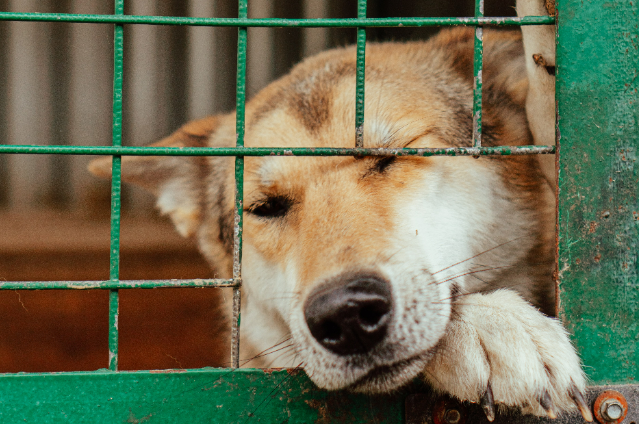
“The greatness of a nation and its moral progress can be judged by the way its animals are treated.” ~ Mahatma Gandhi
Each dawn brings with it the challenge of making our mark in the world. In spite of our efforts to condemn the atrocities committed against us, numerous animals are abused, imprisoned, and butchered, and unfortunately, they are not able to express their pain in words.
However, all is not grim. A large number of countries have taken several initiatives with a view to encourage animal welfare in order to restore tranquility and serenity in the world.
Hunger and thirst, fear and distress, physical discomfort and a sense of well-being are among the five freedoms recognized by the OIE as important to animal welfare.
India has passed many effective laws such as the ‘Prevention of Cruelty to Animal Act, 1960(PCA)’ which states that killing, beating, riding, or infliction of superfluous agony of animals is considered as a criminal conduct. Also, India has one of the strictest wildlife protection laws in the world. Over the last few years, animal welfare advocacy in India has achieved notable victories including the abolishment of dolphinariums by the Ministry of Environment in 2013. Importing or capturing these creatures for mercantile restoration or private/public display is prohibited. Also, ivory trade and the export of shark fins have been banned which makes India one of the significant progressive countries. Many projects such as the Podvolunteer, Asiatic Lion Reintroduction Project, work to educate the local community about animal welfare. In addition to providing care and food for the animals, volunteers also enrich them with enrichment activities.
USA (United States of America) has also made several contributions in the field of animal welfare. Trophy hunting, in which the American trophy hunters would pay money to kill animals overseas and import over 126,000 wildlife trophies per year on average, is strictly banned. Also, cosmetics animal testing has been ended. Thousands of ingredients with a history of safe use could have already been used to create innovative products without the need for additional testing. Across the United States, 3.1 million dogs are euthanized each year. Even though this number is staggering, it has declined sharply from the estimated 3.9 million dogs that entered shelters in 2011. As strays, owner surrenders, and cruelty seizures, these dogs are taken into shelters for rehabilitation and care.
Switzerland has also been an active contributor in the field of animal welfare. The Swiss Animal Protection Act states that the dignity and inherent worth of animals must be respected. As a result of this provision, animals in Switzerland are protected from humiliation or major interference with their appearance or abilities. Some of the goals which support animal welfare are recognition of animal sentience and prohibition of animal suffering, Establishment of supportive government bodies and the presence of animal welfare legislation. It is forbidden to act towards animals if their dignity is disregarded as a result. Also, the Government of Switzerland created a national multi-stakeholder committee to effectively engage all actors involved in maintaining animals’ well-being to find solutions for welfare concerns. This committee includes representatives of numerous animal welfare organizations. This committee guides the country’s policies and strategies on animal welfare, in line with international standards.
The last but not the least, South Korea has been an active contributor in animal security and has commenced numerous laws in order to protect animals. As the Korean Animal Protect Act(동물보호법) is concerned with protecting animal life, ensuring animal safety, and promoting animal welfare, it provides for matters for the prevention of cruelty to animals, as well as protecting and managing them appropriately. This act also mandates some anti-cruelty protections during transportation and states that no animal shall be slaughtered in a cruel or revolting manner and shall be free from unnecessary pain, fear or stress in the process. Similarly, anyone working with animals (defined in Article 32) must undergo annual animal protection education.
Humans shouldn't be at the mercy of animals; our relationship on earth requires peaceful coexistence. We must therefore elevate the status of animals in every country, so that their rights are widely recognized and protected. Their existence cannot be degraded on the basis of their inferiority. However, convincing government officials that animal rights need to be prioritized remains a challenging task. We can participate in a variety of ways in our society to help limit - and eventually eradicate - cruelty to animals. Even though most of us are not legislators, we can still influence public opinion on animal rights and advocate for effective policy reforms. It may include issues such as animal abusers' relative impunity and alternative relationships between people, animals, and the planet. All of these strategies support animal rights and bring us closer to a future based on justice and compassion - whether by joining an animal welfare organization, feeding community animals near your home or workplace, and writing about what needs to be changed.
A hundred years from now, it will not matter the sort of house I live in, in what my bank account was, or the car I drove…but the world may be different because I was important for the animals and the creatures of the world.
This must be wrong what humans do,
To breed the animals to use as food.
Chefs disguise the flesh in such a way,
That as children we do not realize,
An animal has died for our dish of the day.
In years to come people will not conceive,
This suffering we created just so we could feed.
To fill the pockets of weakness with greed
Religious people hold the key
Before you say your prayers tonight
Please spare a thought for animal rights~
Thank you.
. . .
